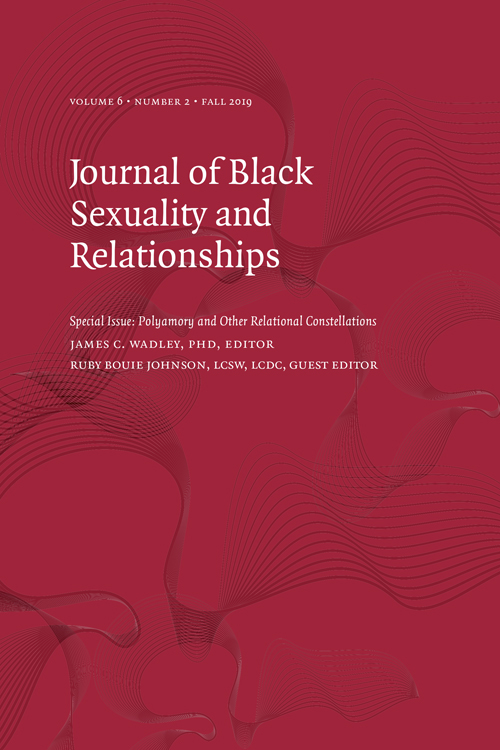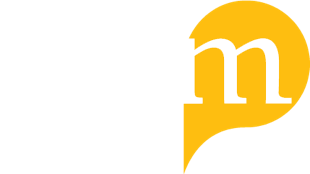2020 Publishers Newsletter
Introduction
Kelley Squazzo
 Today, April 17 2020, would have been our annual gathering in Baltimore for the Project MUSE Publishers Meeting. The Publishers Meeting is always our favorite time of year to meet and catch up with so many of you. It is also the time when we provide key updates on MUSE happenings over the past year that are relevant to your participation in MUSE. Since everyone is dealing with a lot right now, we thought the capacity to sit in an all-day virtual meeting might be very difficult. So the MUSE team decided to prepare this newsletter that you can read at your leisure.
Today, April 17 2020, would have been our annual gathering in Baltimore for the Project MUSE Publishers Meeting. The Publishers Meeting is always our favorite time of year to meet and catch up with so many of you. It is also the time when we provide key updates on MUSE happenings over the past year that are relevant to your participation in MUSE. Since everyone is dealing with a lot right now, we thought the capacity to sit in an all-day virtual meeting might be very difficult. So the MUSE team decided to prepare this newsletter that you can read at your leisure.
Project MUSE has been very busy in the last few weeks temporarily freeing up requested publishers’ content and creating new resources for our library and instructor customers. This has not stopped us from continuing forward with other projects in the works such as building new tools, launching new content, and making improvements to the site that will benefit everyone who engages with MUSE. These updates from Wendy, Melanie, Liz, Phil, and Ann will give you some insights into what is happening now, and what we are planning in the upcoming year.
The Publisher Relations team is also hard at work developing a webinar series for publishers with topics that we hope will be timely and meaningful, such as examining the usage landscape when content is freed. Stay tuned for updates later this Spring.
We are happy to report that we have rebooked the MUSE 25th Anniversary Evening Celebration and Publishers Meeting for April 27-28, 2021. Something to put on your calendars and look forward to!
In the meantime, please do not hesitate to reach out at any time with questions, ideas, or just to talk. Project MUSE is here for you in whatever capacity works for you at this time. We look forward to how we can support our community now, more than ever, in securing a strong future for non-profit scholarly publishing.
Journals Update: New Journals and Enhancements
Liz Brown
 I would love to take up ALL the space on this web page extolling the virtues of every single journal added to the collections for 2020—but I’ll let you browse the list on your own. You’ll find the new journals cover literature, film, classics, history, Latin American studies, philosophy, religion, Middle East studies, and social sciences—subject areas in which MUSE always shines!
I would love to take up ALL the space on this web page extolling the virtues of every single journal added to the collections for 2020—but I’ll let you browse the list on your own. You’ll find the new journals cover literature, film, classics, history, Latin American studies, philosophy, religion, Middle East studies, and social sciences—subject areas in which MUSE always shines!
 As usual, most titles added to the 2020 collection come from our participating journal publishers, but we were happy to add some new publishers as well: Arizona Historical Society, Classical Association of South Africa, Hitchcock Annual, Kenyon Review, The Philosophy Education Society, and University of California Press. We also “promoted” a journal from our Hosted Journals Program to the Collection this year: Journal of Black Sexuality and Relationships from University of Nebraska Press.
As usual, most titles added to the 2020 collection come from our participating journal publishers, but we were happy to add some new publishers as well: Arizona Historical Society, Classical Association of South Africa, Hitchcock Annual, Kenyon Review, The Philosophy Education Society, and University of California Press. We also “promoted” a journal from our Hosted Journals Program to the Collection this year: Journal of Black Sexuality and Relationships from University of Nebraska Press.
The review and selection process for 2021 is currently underway, so stay tuned!
Journal Content Sales Program
Last year we launched our journal content sales program (MUSE publisher account required to view link), starting with article sales in the spring, then issues sales in the summer. Journal content sales enable your content to reach individuals who are not affiliated with an institution to purchase your content If you haven’t yet signed up, please contact me.
Read also about the user experience with purchasing content.
Search Widget
Project MUSE is expanding the MUSE publisher account features to help you get the most out of your MUSE journal participation. We recently brought back an oldie but goodie: the Project MUSE search widget (account login required).
Search Project MUSE®
Try it out for yourself! Every publisher can use the search widget to embed code on their webpages to offer the ability to search their journal(s) from their own websites.
Promotions Tool
At last year’s Publishers Meeting, I gave a sneak peek of our promotions tool (account login required), which allows publishers to customize their MUSE journal, issue, and book homepages. The same tool also allows publishers to enhance their MUSE email alerts for their journal content.
You can do so much with this tool:
- Embed logos for societies or academic departments responsible for journal, books, or series content—additional branding is always a plus!
- Include videos, blogs links, podcasts, and ads (subject to our guidelines)
- Highlight meetings, calls for papers, awards, and much more.
- Embed Facebook and Twitter feeds!
All publishers have access to the Promotions Tool, so if you haven’t started using it, today’s the day! Give it a try. We have enjoyed seeing how publishers have enriched their content pages on MUSE.
MUSE Hosted Journals Program
Finally, one of my major initiatives this year is expanding the Project MUSE Hosted Journals program. The program has succeeded in meeting one of our immediate goals, which is to give a digital home to journals from our participating publishers when those journals are not in the MUSE collections. We want to offer more flexible pricing options, as well as some new marketing and sales services to help hosted journals succeed, plus expand the program to include more publishers.
We know that some of our publishers pay to have their own journal platforms in addition to the MUSE platform. We would like the opportunity to be THE home for all of your journals, and we are hoping to have that ability when we re-launch our hosting program later this year.
Books Update
Phil Hearn
 It has been a year of growth for Project MUSE Books, a collection of 66,000 titles and counting. While we have a number of projects in the works that we can’t wait to share with you in the near future, there is much to celebrate about what we’ve accomplished and what we continue to build as more publishers and users discover MUSE as a pivotal resource for scholarly monographs.
It has been a year of growth for Project MUSE Books, a collection of 66,000 titles and counting. While we have a number of projects in the works that we can’t wait to share with you in the near future, there is much to celebrate about what we’ve accomplished and what we continue to build as more publishers and users discover MUSE as a pivotal resource for scholarly monographs.
New Publishers
We are thrilled to welcome 12 publishers to our books program in 2020 and 2021 (so far!):
- Ariadna Ediciones
- Brown Judaic Studies
- Concordia University Press
- El Colegio de México
- Getty Publications
- Liverpool University Press
- Max Planck Institute for European Legal History
- Punctum Books
- TAPAC: Theatre and Performance Across Cultures
- University of Cincinnati Press
- University of Rochester Press
- Washington State University Press
New Content, New Users
In 2019, we launched nearly 5200 titles from 116 publishers. This is a huge amount of content, but our publishers and production team have been even busier this year, already launching 6200 titles from 97 publishers in 2020 through the end of March. And with new content comes new users; usage for books has also been steadily growing, with a nearly 2% increase year-over-year in 2019.
Single Title Sales
Over 45,000 titles on our platform have been opted into our Single Title Sales program, and we continue to encourage our publishers to opt in all of their titles to open them up to the widest possibility of sales. All books in this program are also eligible for our growing list of libraries participating in Evidence Based Acquisitions (EBA), which has especially helped backlist content on MUSE to find readership and library selection.
Open Access
Less than two years since the launch of MUSE Open, we have launched over 2100 Open Access books on our platform. We want Open Access scholarship to continue to grow, and we are thrilled that MUSE can help foster the discoverability and readership of titles from 62 publishers and counting.
Discoverability and curation remain key challenges in the often overwhelming OA space, and once hosted on Project MUSE these books are finding their way into library catalogs. Project MUSE has built a reputation for hosting only peer-reviewed, carefully curated content, so librarians trust our title lists when selecting OA books for their catalogs. Open Access MARC and KBART files have been downloaded thousands of times, and through our relationships with discovery and linking partners like EBSCO, Ex Libris, and OCLC, we have seen hundreds of libraries worldwide ingest our Open Access list into their discovery layers. We are also working on partnership with the Directory of Open Access Books (DOAB) that will allow MUSE publishers’ metadata to be listed and therefore offering greater discoverability by European readers.
If you have any Open Access projects, either already published or forthcoming, and are interested in making Project MUSE a home for your books, please read more here or reach out to me directly. We can’t wait to see how this program will continue to grow over the next year.
Marketing and Sales Update
Melanie Schaffner

Journals
Project MUSE enters the 2020 subscription term in a healthy position, building on over two decades of subscriber retention rates for our Journal Collections of well over 90%, year upon year. Our core customer base views the MUSE journal collections as an essential resource for serving the research and teaching needs of their humanities and social science departments. This solid base, combined with continued modest growth in international and non-academic library markets, has helped to position us as a mature, stable business.
Operating on a calendar-year subscription cycle has provided the MUSE journal collections with some protection against the disruptions created by COVID-19. The vast majority of our 2020 subscription revenue is already invoiced and collected, and only a small fraction of the remaining accounts receivable might be considered at risk. We have also booked new subscription revenue for this year from new customers.
Our diverse subscriber base has contributed to the growth and stability of Project MUSE over the years, as well as ensured wide dissemination of journal content to a variety of educational and research settings globally. About 53% of our subscribers are academic institutions in the USA and Canada. Of these institutions, the largest group is Master’s-level universities (37%), followed by liberal arts and other 4-year colleges (32%), and large research universities (16%). 14% of academic subscribers in the USA and Canada are community or junior colleges. Academic institutions in the rest of the world comprise 24% of our subscriber base, about half of which are large research universities.
Just under 4% of MUSE journal collection subscribers worldwide are “special libraries” – museums, government agencies, think tanks and research institutes, historical sites, etc – while just over 5% are schools, primarily private and independent high schools. Affordable pricing for customers like high schools and community colleges, allowing them to offer the resource to their communities, means that more students matriculate into colleges and universities already familiar with MUSE as a go-to source for reliable research.
Books
2020 is off to a very good start for MUSE ebooks, across all of our available sales models. Book collection sales through March are up 20% over the same period last year. Single title sales via our channel partner GOBI for each month in the first quarter are nearly double those for the same time period in the prior two years. OASIS, our new channel partner added last year, is also showing significant gains in the first quarter of 2020, more than doubling the 2019 monthly average for two of the first three months of this year. Our Evidence-Based Acquisitions (EBA) program has steadily increased in revenue commitments from participating libraries since its inception, with a significant portion of those funds due to flow through to publishers this year as libraries complete their programs and select books for purchase. Many EBA participants renew their commitments year over year, with our longest-term customers now in their fifth 12-month program term.
Due to the COVID-19 crisis, with many libraries seeking solutions for access to electronic materials for newly remote students, we have fielded several requests for more information about acquisition options for ebooks on MUSE. Libraries greatly appreciate the free access to books made temporarily available by many publishers, but also recognize the need for a longer-term strategy to ensure faculty and students can continue their research and learning in a variety of educational environments. This crisis may have a profound impact on academic library collection policies, which in many cases still favored print over digital book purchasing, particularly in core humanities disciplines. MUSE is working with library customers to assist with their collection needs while ensuring sustainable returns for our participating publishers.
International Sales Update
Ann Snoeyenbos
 In 2019 we had 844 customers outside of US/Canada, representing 62 countries. 96% of those customers came to us through an agent or local consortium. 35 consortium groupings make up 85% of our total international market. These numbers represent a decade of work toward efficiency and cost control. Efficient for me means that I don’t have to handle customers one by one, and efficient for MUSE Customer Support means that they don’t have to invoice or receive payments from every single customer. Sales agents receive commission (unlike library consortia) and we believe that those commission payments are a small price to pay for the representation we gain world-wide.
In 2019 we had 844 customers outside of US/Canada, representing 62 countries. 96% of those customers came to us through an agent or local consortium. 35 consortium groupings make up 85% of our total international market. These numbers represent a decade of work toward efficiency and cost control. Efficient for me means that I don’t have to handle customers one by one, and efficient for MUSE Customer Support means that they don’t have to invoice or receive payments from every single customer. Sales agents receive commission (unlike library consortia) and we believe that those commission payments are a small price to pay for the representation we gain world-wide.
My focus these past few years has been on building new relationships with sales agents in Latin America, central Europe, and the Middle East, and deepening trust and commitment with our long-time partners in Europe and Asia. Typically, a sales agent or consortium will work with dozens, if not hundreds, of products, so a personal relationship is vital in order to keep MUSE at the front of their mind. I do my best to respond quickly and make it easy for them to work with us. I created a web page where all the resources they might need are on a single page, such as advertising and marketing pieces; trade show flyers; links to key pages on the organizational site; reminders about our newsletter and social media, etc.
In the past I primarily attended conferences so that I could interact with a lot of libraries in one place. Now I am doing more sales visits with key partners. While sales visits are not as efficient as conferences they are a way to show my support for an agent, and demonstrate to the local library market that I value that specific agent above the others operating in that region. For example, in 2019 I did library visits with sales agents in Lebanon and India. Unfortunately, COVID-19 forced me to cancel spring sales trips to Colombia, France, and Belgium.
My focus during the COVID-19 crisis has been on reaching out to our sales reps and consortium heads to let them know that I care, because many are under greater restrictions than we are here in Maryland. But also I’m reaching out to make sure they know about the free resources and the OA content we have so they can promote it to their customers. I am also trying to brainstorm with them things we can do now that might help us gain new customers when COVID-19 has passed.
What's Next
Wendy Queen
 While we are letting the excitement of our anniversary build, we have an ambitious set of goals for the next year. In addition to showing our gratitude to our community, part of my vision for the anniversary is to move the platform forward through new engagement, programs, and experiments. We will continue with those activities this year. The reimagined anniversary will allow us to showcase many new initiatives, becoming even more of a celebration with the knowledge that we made MUSE stronger.
While we are letting the excitement of our anniversary build, we have an ambitious set of goals for the next year. In addition to showing our gratitude to our community, part of my vision for the anniversary is to move the platform forward through new engagement, programs, and experiments. We will continue with those activities this year. The reimagined anniversary will allow us to showcase many new initiatives, becoming even more of a celebration with the knowledge that we made MUSE stronger.
The foundation of MUSE is community. We are embracing strategic planning this year and plan to launch an engagement platform that will unite our strong and unique audiences and combine the perspectives of librarians, scholars, and publishers.
The feedback will be vital as we explore new business models. We want to expand our journals program, addressing hosting opportunities, scalability, and Open Access. As our books program will turn 10 in a few years, we have outgrown many of the existing models and are in the final stages of designing new programs to pilot. The books OA program continues to grow at a healthy rate, but there are still many fundamental business strategies to address.
In addition to experimenting with engagement and models, MUSE is working to create more unique content connections and research experiences. During COVID-19, we have pivoted and changed many fundamental pieces of the platform, which will provide us with data that will be a foundation for future experiments. We have seen a higher usage spike than when Google first started indexing platforms, and we hope to combine that new data with an AI strategy to create new pathways for research.
We can’t wait to see you next year, on April 27-28, 2021, in Baltimore to celebrate MUSE’s anniversary and continue to talk about the future of digital scholarly publishing!



